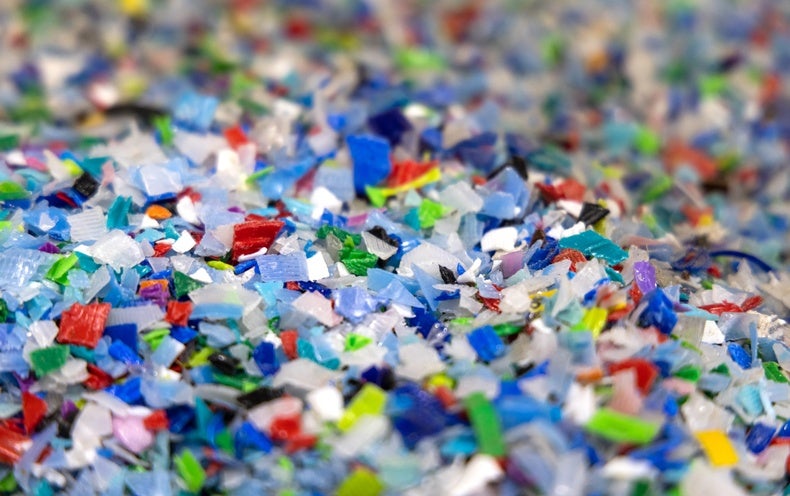Evidence of the economic opportunities that a circular economy could bring is mounting. The potential environmental impact is also clear. The move to a circular economy—a system that aims to reduce, reuse and recycle materials—could address 70% of global greenhouse emissions. As the benefits stack up, this transition is becoming a key focus for policymakers around the world. But there remains much confusion about what a circular economy is, and how it might be achieved.
One common misunderstanding is the notion that it is simply a rebrand of recycling—the recovery and reprocessing of waste materials for use in new products. This perception is reinforced because recycling is the most common component of almost 80% of circular economy definitions. But, although recycling is an important element, there are many others. Before recycling comes into play there are several steps in a product’s life cycle that should be addressed, such as redesigning products and processes so that they use less virgin material, and re-using items rather than discarding them. New business models such as sharing and repairing can be adopted. These approaches prioritize smart designs that extend a product’s useful life, before reaching the stage of recycling. These steps are consistent with the central aim of a circular economy: to provide economic productivity by eliminating the concept of waste.
Recycling is often criticized as insufficient compared with earlier interventions such as reuse or reduce. And it is true that a circular economy requires a great deal more than recycling. But recycling remains a fundamental strategy to extract value from resources, as evidenced by its current contribution to 8.6% global circularity.
To improve recycling rates, we need to recognize that the waste and resource recovery sector is positioned at the end of the supply chain, often known as end of life. This sector has limited influence over the materials and resources they collect. Recycling could improve if more effective changes are made upstream, such as in product design, material use, manufacturing, collection infrastructure and consumer behaviours.
Many countries, institutions and organizations need to increase resource recovery and shift away from the cheapest waste-management solutions such as landfill and incineration. This is a key barrier to realizing a circular economy. In Australia, there was significant disruption to recycling pathways in 2018 when, similarly to other high-income nations, the country could no longer export waste (including plastic and paper recycling) to China. This resulted in recycling being directed to landfill for a short period. For plastics alone, Australia required a 150% increase in domestic plastics-recycling capacity and this highlighted a need to adopt a range of circular economy strategies.
The transition to a circular economy will need further cross-sector collaboration and investment in initiatives that improve recovery rates while minimizing the consumption of raw materials, extending product life and increasing the use of renewable resources. An example is so-called right to repair legislation, which requires manufacturers to modify product design and make parts available to allow consumers to mend products. The right to repair is being adopted in Europe for electronic goods but could be applied to other products. Another example is the United Kingdom’s £200 (US$226) per tonne tax on plastic packaging that doesn’t include at least 30% recycled plastic. This approach is driving up market demand for recycled content and encourages companies to adopt recycled plastic solutions.
The Australian government has also implemented a waste export ban for key materials—including tyres, plastics, glass, paper and cardboard—and announced an investment of Aus$1 billion (roughly US$620 million) into infrastructure to enhance the country’s ability to recover and remanufacture waste materials. Product stewardship schemes, whether government mandated or voluntary, would require manufacturers and consumers to be responsible for a product throughout its life cycle, including its end-of-life stage. This initiative encourages companies to ensure their products can be recycled, such as by improving their design, or by implementing collection and recycling solutions if none already exists.
Ultimately, we need to break traditional boundaries between brand owners, manufacturers and those in the business of waste management and resource recovery, and instead stimulate collaborative partnerships. For example, nine companies joined forces to create a circular supply chain in which they captured soft plastic waste and converted it to a Nestlé KitKat wrapper using Australian-designed advanced recycling technology. This process converts waste plastic to food-grade plastic, in a continuous loop.
Innovation—on both the technological and societal fronts—is essential in the transition to a circular economy. Such shifts are needed to eliminate the concept of waste, by reducing consumption, and an increase in reuse and recycling. Local and global collaborations between government, industry, not-for-profit organizations and research agencies will help to address particularly nasty waste problems, such as plastics in the ocean.
It’s certainly true that a circular economy is much more than just recycling. But increased focus on this essential process is an effective strategy to achieve the larger goal.
This article is part of Nature Outlook: Circular Economy, an editorially independent supplement produced with financial support from Google. About this content.

